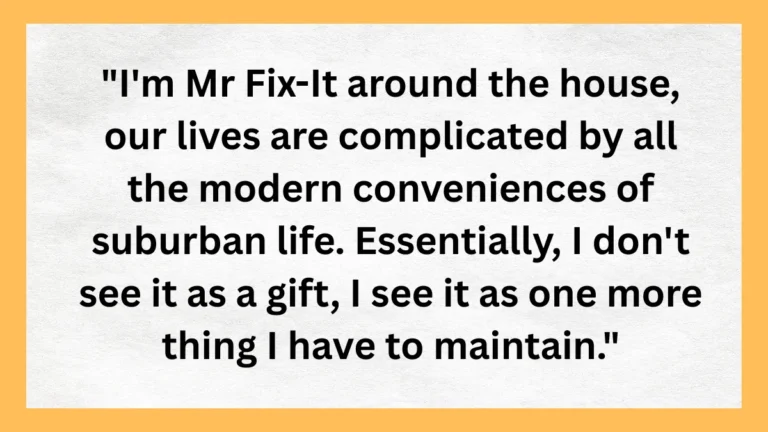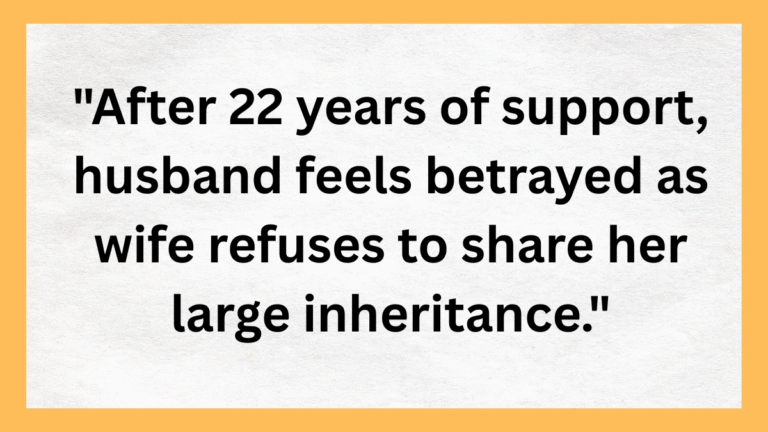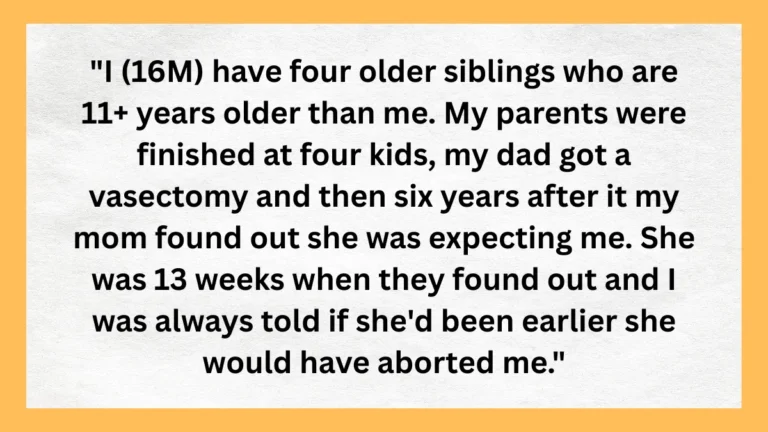No More Support After 18: Is This Dad Really a Deadbeat?
At 44, he found himself at the end of a turbulent marriage with Mary—his partner of equal years. Their relationship, already threadbare, unraveled completely when their daughter Jess was just 12. The breaking point? Mary’s alleged emotional—or perhaps physical—infidelity. He also harbored suspicions that Mary might suffer from undiagnosed Borderline Personality Disorder, a shadow that loomed over their volatile union.
In the wake of the divorce, fatherhood proved no less chaotic. He struggled to draw clear lines with Jess, but Mary refused to reinforce any boundaries. That backfired spectacularly. His early attempts to correct Jess’s behavior were half-hearted—mostly lectures over the phone. But when she was arrested for drug possession at 14, he attempted to enforce harsher consequences. That was the moment Jess cut ties. She declared she’d never return to his home. Though the custody agreement granted him rights, Mary kept Jess without resistance, while he continued footing elevated child support.
At 18, Jess vanished from his life entirely. When he finally stopped the financial aid, Mary accused him of being an absentee father. As if that weren’t enough, Jess publicly called him a “deadbeat dad” on TikTok—perhaps echoing her mother’s bitterness. Now he’s left wondering: was it truly wrong to withdraw both his money and his emotional investment?
Wanna know what really happened? Check Reddit.
Co-parenting after a divorce often feels like a school group project—you’re the one doing all the heavy lifting, while the other parent shows up just in time to smile and take the credit.

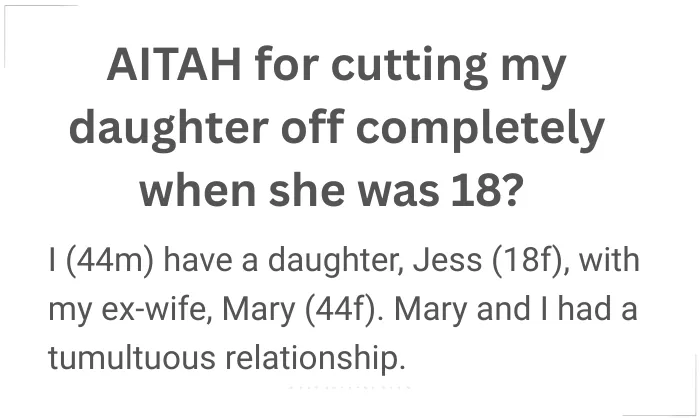
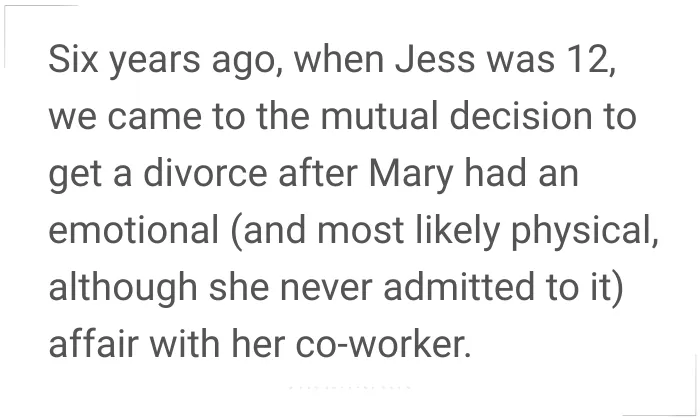
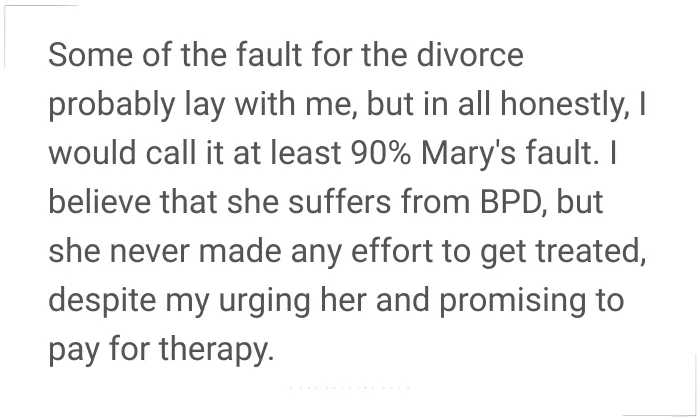
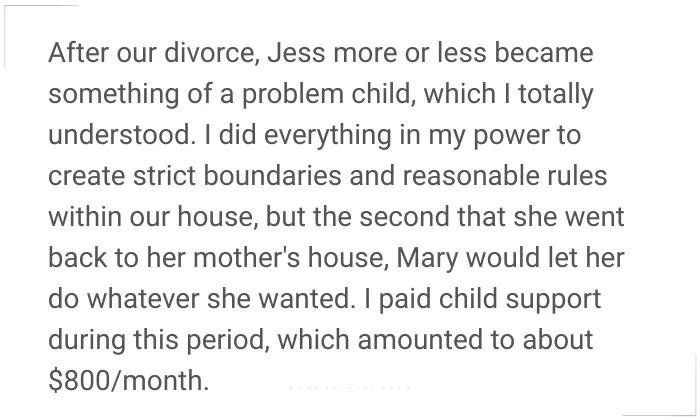

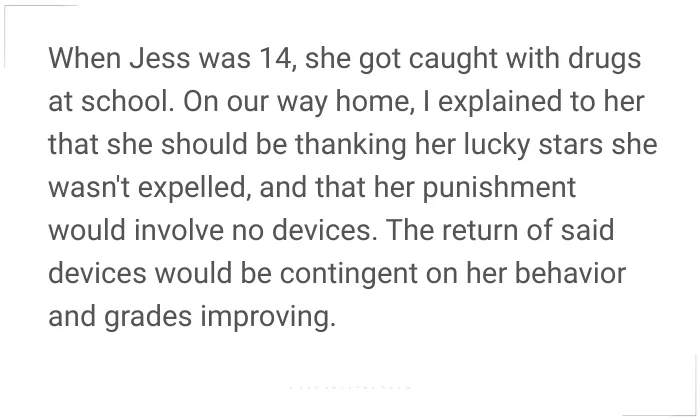

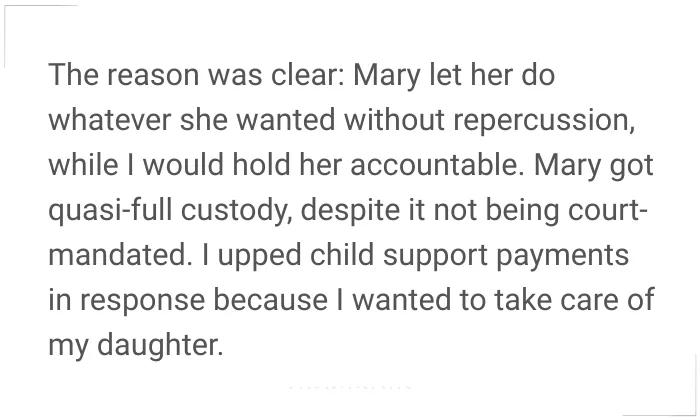
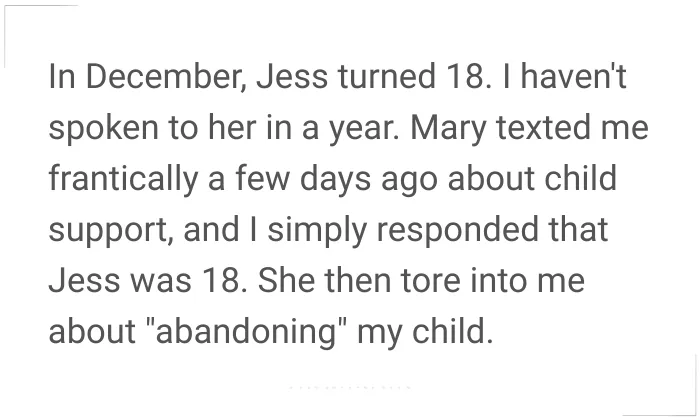

After halting child support when his daughter turned 18, the father found himself branded a ‘deadbeat’ by her and accused of abandonment by his ex-wife.
1. Legal Duty vs. Emotional Fallout
Across most U.S. states, a parent’s legal obligation to pay child support ends automatically when the child turns 18—unless a court mandates continued assistance due to special needs or educational requirements. From a strictly legal standpoint, OP fulfilled his financial duties until Jess reached adulthood. He’s in the clear. Still, some parents choose to extend support voluntarily, especially for college or early adulthood expenses. Cutting off all aid abruptly, however justified, can fracture any remaining emotional bridge. If OP harbors hope of reconciliation, a hard stop might make the climb back to connection even steeper.
2. The Shadow of Alienation
Jess’s sharp turn away from her father following discipline suggests more than just teen rebellion it hints at potential parental alienation. Studies show that when one parent consistently erodes the other’s authority, the child often feels caught in a loyalty tug-of-war, sometimes rejecting the more structured parent altogether.
Psychologist Dr. Richard Warshak’s 2010 research emphasizes how permissive parents can cultivate alienation by casting themselves as the “fun” parent while demonizing the other. If Mary framed OP as overbearing or emotionally distant—and styled herself as Jess’s sole advocate—it’s not shocking that Jess pulled away. For OP to rebuild their bond, acknowledging the possibility of manipulation while sparing Jess the blame could be a crucial first step.
The Ethical Dilemma: Was Cutting Jess Off the Right Move?
This isn’t just a matter of legal obligation—it’s an ethical quandary wrapped in the fabric of parental duty. While Jess may legally be an adult at 18, independence is rarely that binary. Most young adults don’t truly stand on their own until they’ve established stable income and emotional footing. Especially for children raised in turbulent households, many parents continue to provide for essentials—tuition, housing, even groceries—long after the legal ties are severed.
Yet, parenthood isn’t a one-sided transaction. Relationships, especially familial ones, demand reciprocity. If OP extended his hand, offered support, stood by Jess through formative years and she responded by severing contact, airing grievances in public, and depleting her inheritance with no acknowledgment of his sacrifices—then continuing to bankroll her life isn’t a moral requirement. It’s a personal choice.
- Rather than a cold financial cut-off, OP might consider keeping a quiet avenue open. A simple message “I love you. I’ll always be here if you ever want to talk”—can preserve the possibility of reconciliation without enabling further hurt.
- And if OP leans toward accountability, a balanced offer may be best: conditional support, such as funding tuition, provided Jess is willing to acknowledge past missteps and commit to rebuilding their fractured bond.
Online users rallied behind the father, agreeing he’s not in the wrong for ending child support after his daughter reached 18.
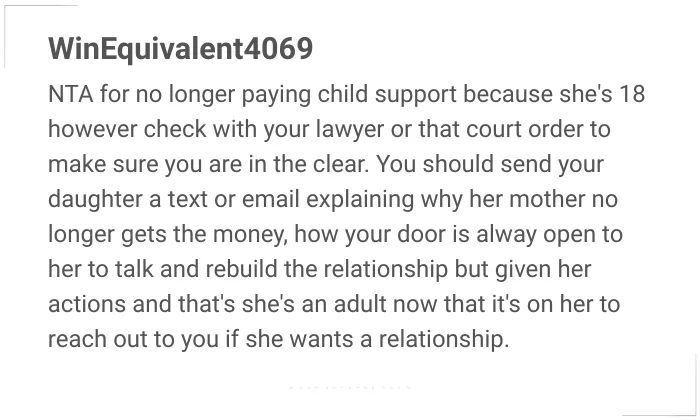


He’s not the villain here—he upheld his financial responsibilities right up to the legal finish line. But severing emotional ties without offering even a hint of reconciliation could push Jess further away, especially if Mary’s influence runs deep. If OP still hopes to rebuild their relationship, a small gesture—one that respects his boundaries—might be the step that reopens the door.




